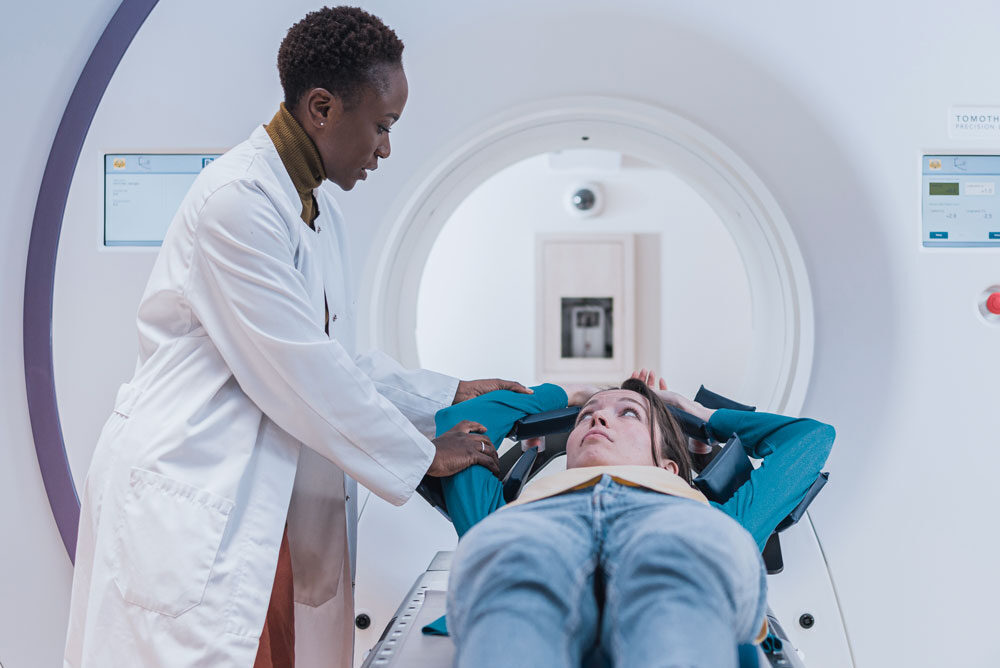- Services ›
- Neuro-Oncology ›
- Gamma Knife Radiosurgery
Gamma Knife is a type of stereotactic radiosurgery system used for the precise and targeted delivery of radiation therapy to treat brain conditions
Despite its name, Gamma Knife does not involve any surgical incisions; instead, it utilises multiple converging beams of gamma radiation to deliver a highly focused and precise dose of radiation to the target area within the brain.
Gamma Knife treatment is typically performed in a single session, and the duration of the procedure can vary depending on the size and number of lesions being treated. The high precision of Gamma Knife allows for maximal radiation dose to be delivered to the target while minimising exposure to surrounding healthy brain tissue, reducing the risk of radiation-related side effects.
Book a Consultation
Book A Consultation
Speak with our experts today and book a consultation with one of our doctors
Diagnosis
Our doctors can speak with you, run diagnostics, and recommend the best treatments for your condition.
Treatments
Visit our centre in London and receive the most advanced treatment techniques without delay
Brain Metastases
Stereotactic Radiosurgery which delivers a highly focused, precise, and intense dose of radiation to the metastatic brain lesions while sparing nearby healthy tissue. Despite the name, it does not involve surgery in the traditional sense; rather, it uses advanced imaging techniques to precisely target the lesions from multiple angles.
This treatment can be completed in a single session or in a few sessions depending on the size and number of lesions. Stereotactic Radiosurgery is often used for smaller metastatic lesions or when lesions are in critical areas of the brain where surgical removal may be risky.
View Brain Metastases
Glioma
A glioma is a type of tumour that originates in the glial cells of the brain or spinal cord. Glial cells are supportive cells that surround and support neurons, the primary functional cells of the nervous system. Gliomas can vary in aggressiveness and may be classified as low-grade (slow-growing) or high-grade (fast-growing) tumours.
Treatment for gliomas typically involves a combination of surgery, radiation therapy, chemotherapy, and targeted drug therapy, tailored to the individual characteristics of the tumour and the patient's overall health.
View Glioma
Our Consultants
Our leading team of consultant Neurosurgeons and Oncologists can get you the treatment you need for your condition
See our consultants Feeling any face pain or headaches?
Call us on 0208 713 0459 to book a consultation.

